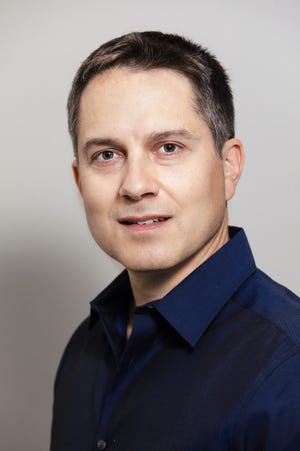Israel is leading artificial intelligence innovatinos in medicine

Israel is globally renowned for being a leader in healthcare innovation. Whether it’s the creation of the first robotic exoskeleton used by people on several continents or the development of stem cell therapy products to treat blood cancers or a pill with a tiny camera inside that is swallowed to get a view of the digestive tract, Israel has always been at the forefront of developing the latest technologies to improve healthcare and patient care. Today, as the world looks to the opportunities that artificial intelligence (AI) can bring to various industries and sectors, Israel is yet again at the fore already applying it to the healthcare space.
AI is fast becoming the cornerstone of digital health, a discipline that combines advanced software with the use of information and communications technologies in medicine and other health professions to promote wellness and manage disease. This broad term includes decision support systems, remote sensing and wearables, robotic therapy, telemonitoring and personalized medicine. The rapid development of AI allows for more effective digital health solutions, thanks to its ability to analyze complex datasets and deliver precision-oriented solutions. However, the future of digital health depends not only on this technological leap but also on its ability to bring significant incremental value to the care of patients.
At Beilinson Hospital (part of Rabin Medical Center) in Israel, we have undertaken a unique endeavor based on the ability to combine AI technology and human medical expertise should combine, to foster healthier, happier lives. Our Innovation Center has been focused on a series of groundbreaking projects leveraging AI to digital health solutions. The multidisciplinary innovation team includes physicians, researchers and data scientists who have specialized in artificial intelligence. The team seeks opportunities to address large unmet clinical needs using AI. The ability to leverage AI to find solutions for these medical conditions revolutionizes how diseases are detected, treated, and managed. Here is a glimpse of some of the AI-based projects developed by Beilinson’s Innovation Center led by Nadav Loebl.
Rapid stroke detection
During several surgical and minimally invasive medical procedures, patients are at increased risk of developing a stroke, which may not be apparent until they recover from the anesthesia. The innovation center, in collaboration with its neurology department, has developed a cutting-edge AI-driven stroke detection system based on video feed, to identify early signs of a stroke. Signs such as eye deviation, asymmetric limb movement, and facial droop are detected by this digital health tool. This solution holds great clinical significance, because prompt intervention, based on these signs, may lower the risk of long-term disability.
A digital companion for the elderly
During admission at the hospital, elderly patients are surrounded by thousands of people but may be lonely for long periods of time. An application we developed allows patients to interact with a ChatGPT-based technology through simple conversation, making it accessible and user-friendly for all. Medical staff may configure the application so that it is sensitive to the context of interacting with hospitalized patients, ensuring it recognizes the nuances of such conversations – if any clinical questions or concerns arise during these interactions, and also guiding patients towards seeking advice or assistance when needed. After conducting successful experiments across multiple languages, including Hebrew, English, Arabic, and French, many of the mostly elderly patients quickly warm up to the idea and enjoy sharing their personal history and interests with the application. This AI-driven initiative is notable not just for facilitating conversation but also for its ability to gather data that can predict cognitive decline and stress levels, thereby introducing a proactive layer of care.
Unlocking cardiovascular insights from mammographies
Mammography uses low-energy X-rays to examine the human breast for diagnosis and screening of breast cancer. A pioneering project at the innovation center based on these images is redefining the way we can predict the development of cardiovascular disease in women. By analyzing mammograms with advanced AI algorithms, the hospital’s researchers are charting a novel path in the early prediction of cardiovascular disease – which is the leading cause of death in elderly women. This innovative approach offers a more accessible and significantly less invasive option for patients who otherwise may not be referred to a cardiology clinic.
Enhancing heart valve repair outcomes with AI
A common heart disease involves a leaking mitral valve, which may require a minimally invasive treatment termed “Transcatheter Edge to Edge Repair.” The success of these procedures is unpredictable in many cases and depends on the anatomy of the valve and other individual patient factors. Our team trained a special AI algorithm, based on numerous transesophageal echocardiography videos, which can improve these outcomes by predicting success rates, aiding surgical planning and patient counseling. This system is now being tested in advanced research stages.
Opinion:Israel’s innovation leadership spans its 76-year history — and beyond
Emergency advice at your fingertips
The IronMed project, developed at the onset of the Swords of Iron War, is a testament to our innovative approach to crisis management and healthcare accessibility. Based on cutting-edge Large Language Models (LLMs), this AI system is designed to provide first medical response guidance, meticulously validated by clinicians to ensure reliability and accuracy.

We are in the middle of a rapid evolution in healthcare, marked by the augmentation and support of human clinical effort by intelligent machines, enhancing precision and efficiency in patient care. The strength and uniqueness of centers such as the Beilinson Innovation Center lie in its integral approach within the hospital, fostering clinical knowledge and expertise of cutting-edge AI models, ensuring not only robust results but also significant value in the management of patients. As we celebrate 76 years of Israeli healthcare innovation that has been shared with the world, we are very excited by the results of the AI-based projects developed at Beilinson and look forward to continuing to share them with other hospitals around the world.
Dr. Leor Perl is the chief innovation officer at Rabin Medical Center, one of Israel’s largest and most prominent medical centers.



